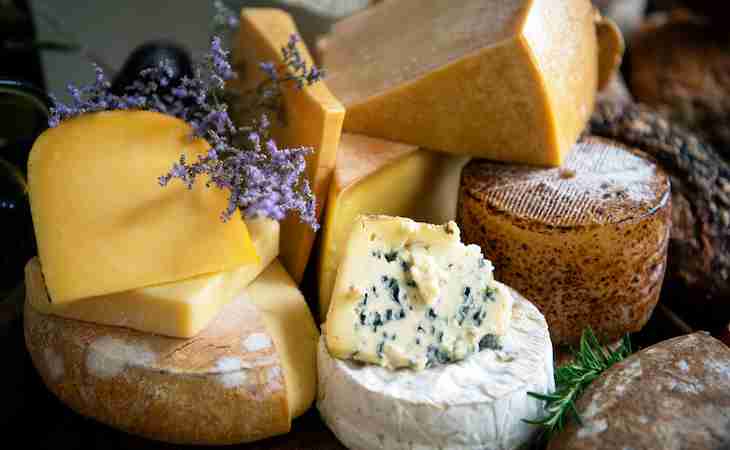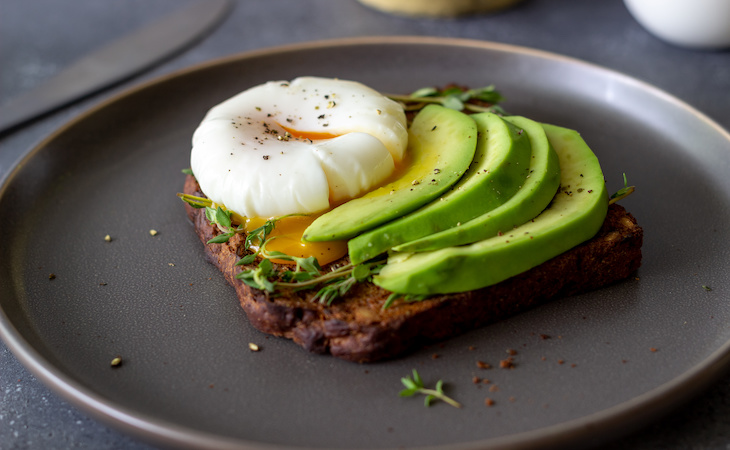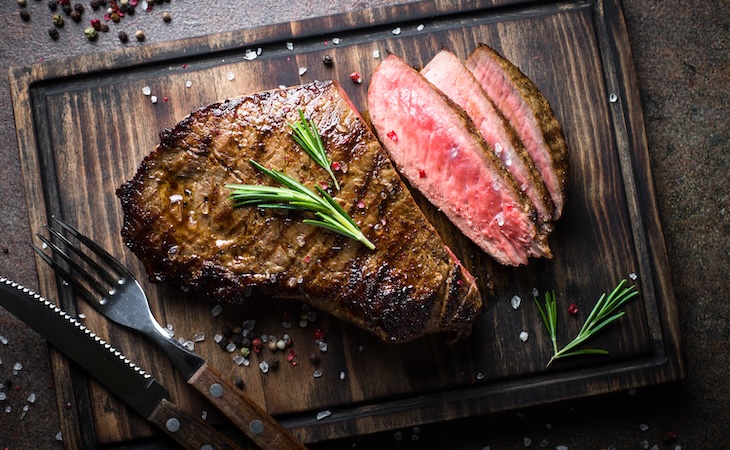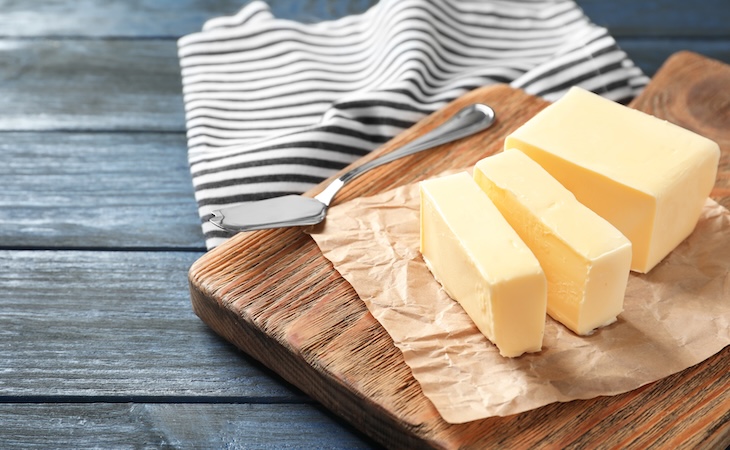If you’re a cheese lover, there’s a gouda chance you’ve eaten it as an after-hours snack. But whether it’s really the best nighttime nosh is up for debate. Certain cheeses (such as cottage cheese) may improve your sleep—while other types of cheese could potentially cause vivid dreams that disrupt your snooze. However, there’s really not much research on the impact cheese specifically can have on your sleep.
So, is it bad to eat cheese before bed? This article will explore the effects cheese may have on getting sound shuteye.
Is it bad to eat cheese before bed?
There are pros and cons to eating cheese before bed. Here’s what you need to know.
How cheese may promote good sleep
Dairy products, including cheeses, are rich in protein from whey, casein, and alpha-lactalbumin (A-LAC), contributors of tryptophan. [1] Tryptophan is an amino acid often blamed for Thanksgiving day meal fatigue.
That said, tryptophan is necessary for making serotonin and melatonin, sleep-promoting chemicals that naturally occur in your body. Cheeses high in tryptophan that may benefit your sleep are cottage cheese and hard cheeses such as mozzarella, cheddar, and Parmesan. [2]
Whether provolone or Colby Jack, cheese has more nutrients that may be a friend to good sleep. Protein in cheese may help you sleep longer and balance blood sugar levels overnight. [3] Sleep disturbances can happen when blood sugar levels dip below normal. [4]
Additionally, cheese is a good source of calcium, offering about 200 milligrams in one ounce of cheddar (15% of the daily value). [5, 6] Some studies suggest a link between poor sleep and low calcium intake; therefore, eating cheese may increase calcium levels over time to help get a better night’s rest. [7, 8]
How cheese may challenge good sleep
For most, eating cheese before bed may not be bad. But, for those with reflux issues or lactose intolerance, it may cause problems.
Reflux, or acid reflux, happens when your stomach contents travel back up the tube between your mouth and stomach, also known as your esophagus. If you have acid reflux, you may fare better eating your cheesy snack three hours before slumber. [9]
Now, suppose you have lactose intolerance like 68% of the world’s population does. [10] Eating foods with lactose could harm your sleep patterns. [11] Parmesan, cheddar, swiss, and camembert are low-lactose cheeses that most people with lactose intolerance can still tolerate. Ricotta cheese, on the other hand, is higher in lactose and could cause symptoms in some people. [12]
Also, keep in mind that eating heavy meals before bed may cause your body to work harder through digestion and could lead to poor-quality sleep. [13] So it’s always a good idea to focus on cheese as a snack versus eating a cheese pizza meal before bed.
Does eating cheese before bed give you nightmares?
While some peg cheese for causing nightmares, there’s no definitive link that eating cheese too close to bedtime causes haunting dreams. However, there is some anecdotal evidence that cheese can cause more vivid dreams.
A study published in the journal Frontiers in Psychology interviewed 396 college students about how food affected their dreams. Researchers found that 17% of participants said eating certain foods (the most common were cheese, milk, ice cream, sweets, and spicy foods) resulted in disturbing or bizarre dreams. [14]
Cheese alternatives to eat before bed
Here are some sleep-friendly swaps for those looking for alternatives to cheese as a bedtime snack.
Non-dairy snacks:
- Turkey deli slices (high in tryptophan)
- Tart cherries (fiber for fullness)
- Chopped almonds (good source of calcium)
- Pistachios (rich in melatonin)
- Bananas (contain tryptophan)
- Oat berry smoothie made with nondairy milk (fiber-rich and contains melatonin)
- Boiled eggs (contain tryptophan)
Dairy snacks:
- A glass of milk (high in tryptophan)
- Yogurt (high in tryptophan)
FAQs
Is cheese OK to eat before bed?
You might want to avoid cheese before bed if it causes you digestive upset. For example, eating cheese before bed could lead to indigestion or heartburn if you have reflux. If you have gas, stomach pain, bloating, or diarrhea after eating cheese, you might be lactose intolerant. Symptoms like these can interrupt normal sleep, so it may be best to avoid cheese before bed.
What is the best cheese for sleep?
Cottage cheese is the best for sleep because it’s high in sleep-friendly nutrients—tryptophan, calcium, and protein.
Is avocado a good nighttime snack? Learn all about the effects of eating avocado before bed.
References
- St-Onge, M. P., Zuraikat, F. M., & Neilson, M. (2023). Exploring the Role of Dairy Products In Sleep Quality: From Population Studies to Mechanistic Evaluations. Advances in nutrition (Bethesda, Md.), 14(2), 283–294. https://doi.org/10.1016/j.advnut.2023.01.004
- My Food Data. Top 10 Foods Highest in Tryptophan. htps://www.myfooddata.com/articles/high-tryptophan-foods.php
- Doherty, R., Madigan, S., Warrington, G., & Ellis, J. (2019). Sleep and Nutrition Interactions: Implications for Athletes. Nutrients, 11(4), 822. https://doi.org/10.3390/nu11040822
- Zhu, B., Abu Irsheed, G. M., Martyn-Nemeth, P., & Reutrakul, S. (2021). Type 1 Diabetes, Sleep, and Hypoglycemia. Current diabetes reports, 21(12), 55. https://doi.org/10.1007/s11892-021-01424-1
- U.S. Department of Agriculture: FoodData Central: Cheese, cheddar, sharp, sliced. https://fdc.nal.usda.gov/food-details/170899/nutrients
- U.S. Food and Drug Administration. Daily Value on the Nutrition and Supplement Facts Labels. https://www.fda.gov/food/nutrition-facts-label/daily-value-nutrition-and-supplement-facts-labels
- Alkhatatbeh, M. J., Khwaileh, H. N., & Abdul-Razzak, K. K. (2021). High prevalence of low dairy calcium intake and association with insomnia, anxiety, depression and musculoskeletal pain in university students from Jordan. Public health nutrition, 24(7), 1778–1786. https://doi.org/10.1017/S1368980020002888
- Alkhatatbeh, M. J., Abdul-Razzak, K. K., & Khwaileh, H. N. (2021). Poor sleep quality among young adults: The role of anxiety, depression, musculoskeletal pain, and low dietary calcium intake. Perspectives in psychiatric care, 57(1), 117–128. https://doi.org/10.1111/ppc.12533
- Sandhu, D. S., & Fass, R. (2018). Current Trends in the Management of Gastroesophageal Reflux Disease. Gut and liver, 12(1), 7–16. https://doi.org/10.5009/gnl16615
- NIH: National Institute of Diabetes and Digestive and Kidney Diseases. Definition and Facts for Lactose Intolerance. https://www.niddk.nih.gov/health-information/digestive-diseases/lactose-intolerance/definition-facts
- Domínguez-Ortega, G., Borrelli, O., Meyer, R., Dziubak, R., De Koker, C., Godwin, H., Fleming, C., Thapar, N., Elawad, M., Kiparissi, F., Fox, A. T., & Shah, N. (2014). Extraintestinal manifestations in children with gastrointestinal food allergy. Journal of pediatric gastroenterology and nutrition, 59(2), 210–214. https://doi.org/10.1097/MPG.0000000000000391
- WebMD. Lactose Intolerance: 14 Ways to Still Love Dairy. https://www.webmd.com/digestive-disorders/ss/slideshow-dairy
- Centers for Disease Control and Prevention: Sleep. About Sleep. https://www.cdc.gov/sleep/about/index.html
- Nielsen, T., & Powell, R. A. (2015). Dreams of the Rarebit Fiend: food and diet as instigators of bizarre and disturbing dreams. Frontiers in psychology, 6, 47. https://doi.org/10.3389/fpsyg.2015.00047




